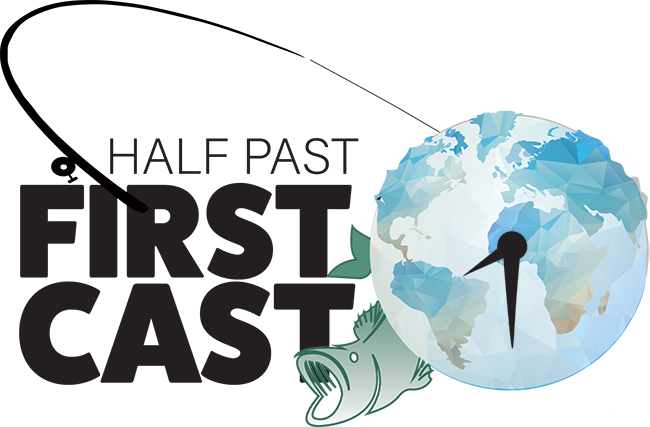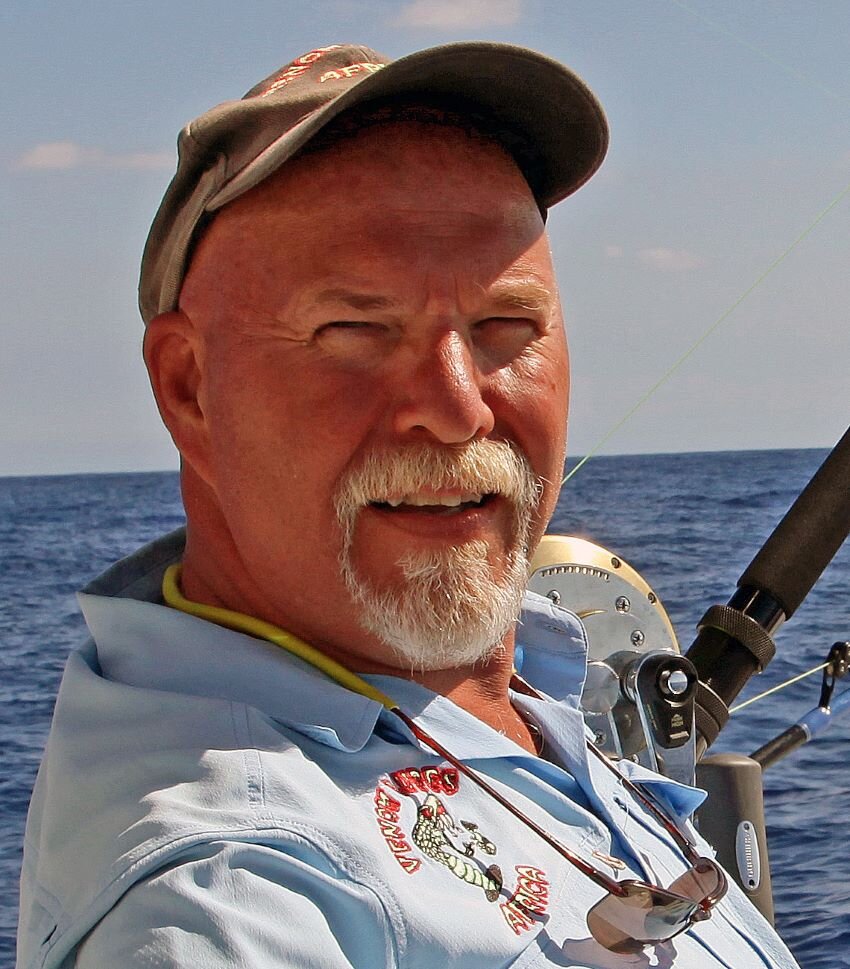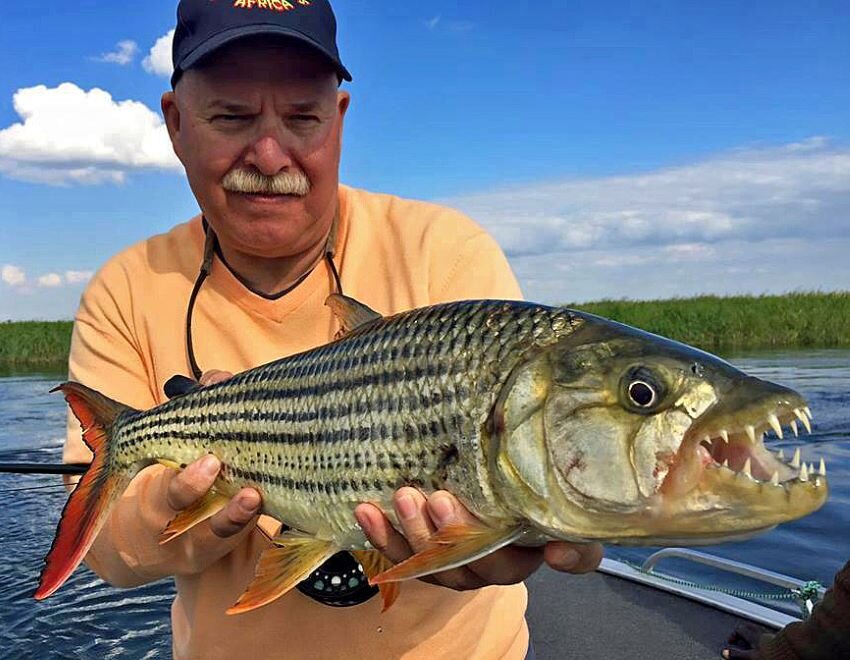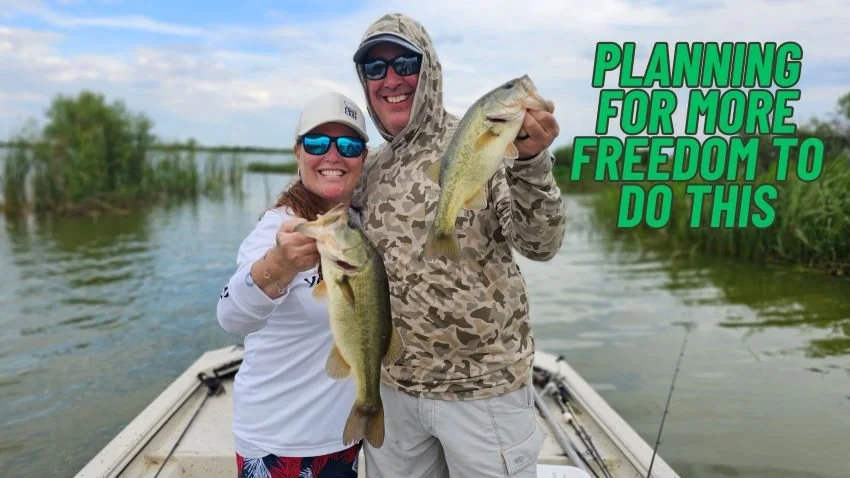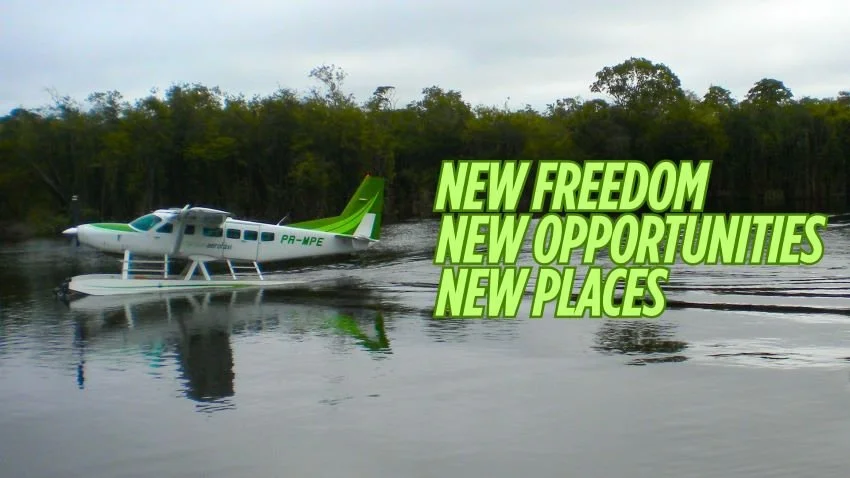George Robey: Our Fishing Guru in Africa
By the time Hanna and I went to Africa a few falls ago, I’d already been in contact with American expat George Robey through social media on another matter. Our schedule down there was going to be tight, but Gentleman George insisted on treating us like royalty with the few spare hours we had in Johannesburg. First, he arranged for a fantastic dinner with much of the top brass of the South African bass fishing community, and then the next morning – as Hanna went to a local handicrafts market — George took me on a whirlwind tour of the area’s tackle shops. He knew everyone and everyone seemed to rely upon his counsel and friendship.
My biggest regret after we left was that we had not been able to stay for a few more days to visit with George and his lovely wife Catherine, and ideally to chase after some big African bass. We’d caught tigerfish on the Lower Zambezi, but it would have been nice to get a chance to fish for our native species in the storied lakes where crocs and hippos rule the water. Indeed, through his recent series of articles in Bassmaster about the African bassing scene, I’ve come to regret that decision even more. When time and finances allow, I can guarantee you we will make our way back.
In the meantime, I’ve come to rely on George’s articles, stories and correspondence as a way of getting my fix. Not only am I jealous of his experience, but also of his way with words. Accordingly, rather than trying to edit his answers into a cohesive article, I’ve realized that it’s much better to quote him verbatim. Here’s his abridged story --- if you don’t want to visit Africa after reading this, you’re not a devout angler-adventurer.
Love and adventure lured me to South Africa . . .
My wife, Catherine was born in Chingola, Zambia (Northern Rhodesia at the time) where she developed a passion for fishing and the outdoors….a rite of family passage in those days.
Her father was a Professional Hunter (PH) who guided American/European clients during the salad days of Africa’s big game hunting. He operated throughout Rhodesia and later, Botswana, alongside Harry Selby, the inspirational character in Robert Ruark’s book, Horn of the Hunter.
Catherine would often join her father in search of remote and hidden water to fish for Tiger Fish and wild Tilapia (called Bream in Africa). They pushed into wild spaces, cutting roads in the bush, camping, exploring and fishing.
Catherine eventually made her way to America. Through a web of friends and various connections I helped her locate a lost relative. We fell in love quickly and spent great days seeking adventure.
Like Catherine, my life remains branded by outdoor adventure; hunting, fishing, travelling throughout the USA, Canada and abroad, often sharing those experience as an outdoor journalist. Surprisingly and unknown to many these days, my fishing passion has always been the fly rod.
Catherine and I chased a wide range of fish species from trout to panfish to walleyes to bass throughout North America. We developed a mutual love for flats fishing the Caribbean. Bonefish, Permit and Tarpon provided great fun in beautiful places such as Central and South America, the British West Indies and our favourite, Mexico’s Yucatan.
Catherine’s family remained in South Africa and we travelled there often. We explored all the Provinces of South Africa and many surrounding countries by taking photographs, game viewing, birding and fishing when possible. I sensed that one month every year was not enough to satisfy my restless wife . . . she longed for home.
Catherine expressed to me one day a desire to return permanently to Africa. There is no place like it, she told me and confessed that Africa lives in her soul. She missed the summer rains, evening thunderstorms, nightly starscape, morning birdsong, the dust, the smells and earthiness of her homeland. As free, easy and comfortable as it was in America . . . it would never be home.
It did not take a lot of persuasion to get me onboard. I too had fallen in love with Catherine’s Africa and of course wanted to see her happy. It would be an adventure to share. We loaded personal belongings in shipping containers, rolled our 18-foot bass boat onto an Africa bound ship and departed.
My great lifelong friend Dave Maurice, founder/owner of Venom Lures Mfg. bass fishing tackle was most supportive. Over the years we had shared innumerable hours hunting, training bird dogs, shooting clay targets, travelling and fishing, including time in Africa. Dave suggested I explore the idea of handling Venom Lures distribution in Africa.
It took some effort, but we developed a supply chain, negotiated pricing and strategized. The project launched soon after our arrival in South Africa and today, eight years later the Venom brand remains a popular bass fishing product throughout sub-Saharan Africa.
Virtually all bass fishing tackle in Africa is imported from America, Europe or China. The big names are here; Rapala, Strike King, Yamamoto, Berkeley, Googan, each fighting for a share of a surprisingly small market.
There is romantic appeal to the fishing stores of southern Africa, at least for a greybeard like me. Fishing stores in Africa are often small family operated businesses reminiscent of my youth in Midwest America. Today, in the USA, most of the small stores have been overrun by big corporate giants.
Catherine and I joined Anglers Rest Bass Club soon after our arrival on African soil. We were recruited by wonderful, long-time friends and knew many of the members when we enrolled. Bass clubs in Africa are not much different than those in the USA. In fact, they are managed by rules of the South Africa Bass Anglers Association (SABAA) which is in turn a sanctioned organization of B.A.S.S.
The bass fishing season is a long one in Africa due to climate. In fact, many of the tournament circuits fish year around. It can get quite cold during the winter in southern Africa, including snow in the cape highlands and frost in the lower elevations but water temperatures rarely dip below 55 degrees.
Fishing styles and techniques in Africa remain similar to North America with some exceptions. First, there are no shad in Africa which makes bass less nomadic and more ambush oriented. Secondly, bass are less susceptible to power fishing and more readily caught with a slow presentation. Finally, bass recruitment from year to year is highly cyclic causing lakes to turn on and off quickly.
Bass fishing anywhere in southern Africa can produce a trophy over ten pounds. Some lakes are better suited than others for trophy fishing, but the climate and distribution of Florida Bass makes possible big fish anywhere.
The trophy zone of South Africa encompasses most of the Lowveld region of Mpumalanga and KwaZulu-Natal due to warm temperatures, high humidity, abundance of Florida Bass and accelerated growth rates. Lakes like Albert Falls, Inanda, Goudetrouw, Driekoppies and Loskop have produced large numbers of giant bass.
The biggest African bass have come from surrounding countries, such as Botswana, Mozambique and Zimbabwe. Botswana’s Letsibogo Dam has produced bass over 17 pounds. My last trip there fishing with bass legends, Gerry Jooste and Justy Varkevisser produced a 50 pound five-fish bag.
Zimbabwe’s Darwendale Lake produced the all-Africa record of 18.24 pounds and in February of this year an FLW tourney produced a winning five-fish bag of over 48 pounds with multiple fish between 10 and 13 pounds brought to the scale. Zimbabwe remains the heart and soul of Africa’s trophy bass fishing.
Lake Chicamba in Mozambique is another trophy hotspot credited with many giant bass. The lake is not easy to access and is situated in a remote region of Old Africa. Getting there is not easy. However, rental bass boats can be arranged for visiting anglers and that is something not widely available throughout the remainder of Africa.
Although Africa’s bass fishing remains world-class the infrastructure for bass tourism does not exist. Lakes in Africa are not like those in America. There are no lakeside marinas, nearby tackle shops, restaurants or fancy concrete launch ramps. The best lakes require a shoreline launch from a remote location with a hired guard to watch your vehicle.
Bass anglers from afar often connect with a local angler, develop a friendship and wrangle an invite. There are only a few fishing guides scattered throughout southern Africa. The problem for touring anglers is that the good ones do not advertise because they already have a client base while others hold jobs and guide part time.
But….bass are not the only game fish in Africa and off species provide great opportunity. Fly fishing the interior for both Largemouth and Smallmouth Yellowfish creates great fun. Largemouth yellows can exceed twenty pounds, Smallmouth yellows closer to six pounds.
The native African fish inhabit both rivers and lakes. I have caught them from rivers in the remote, rugged high country of Lesotho down to the Lowveld of South Africa. They regularly take dry flies, but some days want only nymphs.
Trout fishing remains wildly popular for fly anglers in both moving water and still. Much of the highland of South Africa provides opportunity with hatchery fish but wild trout inhabit the upper elevations of the Western Cape and the clear, mountain streams of Lesotho.
Tiger Fish are another game species of great consequence. Perhaps, the King of Africa’s trophy fish. They are strong, fierce warriors caught on both fly and and conventional tackle.
I have caught Tiger Fish from Lake Jozini and from the Komati River in South Africa and Lake Kariba in Zimbabwe but prefer the Zambezi River in Zambia. My friend, Garreth Coombs of Sekoma Island Lodge is a Tiger Fish legend who has developed an unbeatable system for targeting big Tigers on both fly and conventional tackle.
South Africa remains surrounded by coastline. The Atlantic on the east and Indian Ocean on the west. Saltwater fishing ranges anywhere from poor to great depending on species and location. The high seas of Africa are exploited routinely by foreign trawlers.
Marlin fishing in the Indian Ocean declined over the years but experienced a brief comeback when Somalian pirates frightened away illegal trawlers. Not long ago, I spent five days aboard sport fishing boats out of Mauritius watching other anglers catch Blue Marlin. That’s right, not a single fish caught in my presence.
Jean-Pierre Henry, founder of JPH Charter Company stationed in Black River, Mauritius maintains a meticulous diary and has vast anecdotal experience from a lifetime of chasing Billfish.
“Sadly, Marlin catches have decreased by about 50 percent over the last thirty years, but on the bright side, we have seen an increase of nearly 50 percent over the last few years,” Jean-Pierre said.
It’s a different story for Yellow Fin Tuna. Hout Bay, a beautiful seaside village south of Cape Town is the epicenter of world class tuna fishing. Two tuna tourneys are hosted annually by the Atlantic Boat Club of Hout Bay.
I joined a group of anglers, including South Africa cricket legend Justin Kemp on a 52-foot boat to fish the Tuna Masters Derby last April. The number and size of tuna caught that day boggles the imagination.
“This is a world class offshore tuna fishery,” says Pierre Van Der Merwe, Chairman of the Atlantic Boat Club. “Where else can you go for a day’s fishing and catch 4-6 tuna between 30 and 100kg?”
Of course, some of the world’s greatest flats fishing occurs in the Seychelles. Bonefish, Bumphead Parrotfish and GT’s are targeted on remote, scenic Indian Ocean atolls. It is one place I have not visited and one that remains on my bucket list.
I have been fortunate to experience much of Africa’s great fishing. I would like to build on that. Still, I have neither fished the Orange River in the Kalahari nor have I experienced the outer atolls in the Indian Ocean. They remain adventures in waiting….
My international bucket list includes flyfishing the flats of Cuba and the mountains of Patagonia and although I have been in every American state and every Canadian Province, generally fishing or hunting, I have never been to Alaska.
Strangely, my fishing goals and aspirations have changed over the years. No longer do I yearn to simply catch a fish. My dreams are of adventure and my urge to go fishing is about the experience. A concept that developed over (too many) years.
Perhaps that is why fishing and travel go hand in hand? No matter how old a fisherman becomes, the grass is always greener on the far side of the hill.
***
George is a freelance outdoor writer/photographer who appears in various publication including Bassmaster magazine, Voyages de Peche (Fishing and Travel), Britain’s Fly Fishing and Fly Tying and others. You can follow George on his Facebook Blog, ALL OUTDOORS AFRICA.
George has appeared in many American magazines including Bass Angler Magazine (BAM), FLW magazine, American Angler, Petersen’s Hunting, Canoe Journal, Country Living, International Living, Bowhunter, Bowhunting World, Bow and Arrow Hunting, Hunting Dog, among others.
George was most recently Senior Staff Writer for The Bass Angler magazine and Stywe Lyne (Tight Lines) magazines in South Africa and a regular monthly contributor to South Africa’s premiere travel magazine, Country Life which ceased publication during the Covid lockdown.
Currently, looking for a new home in the South Africa media market!
